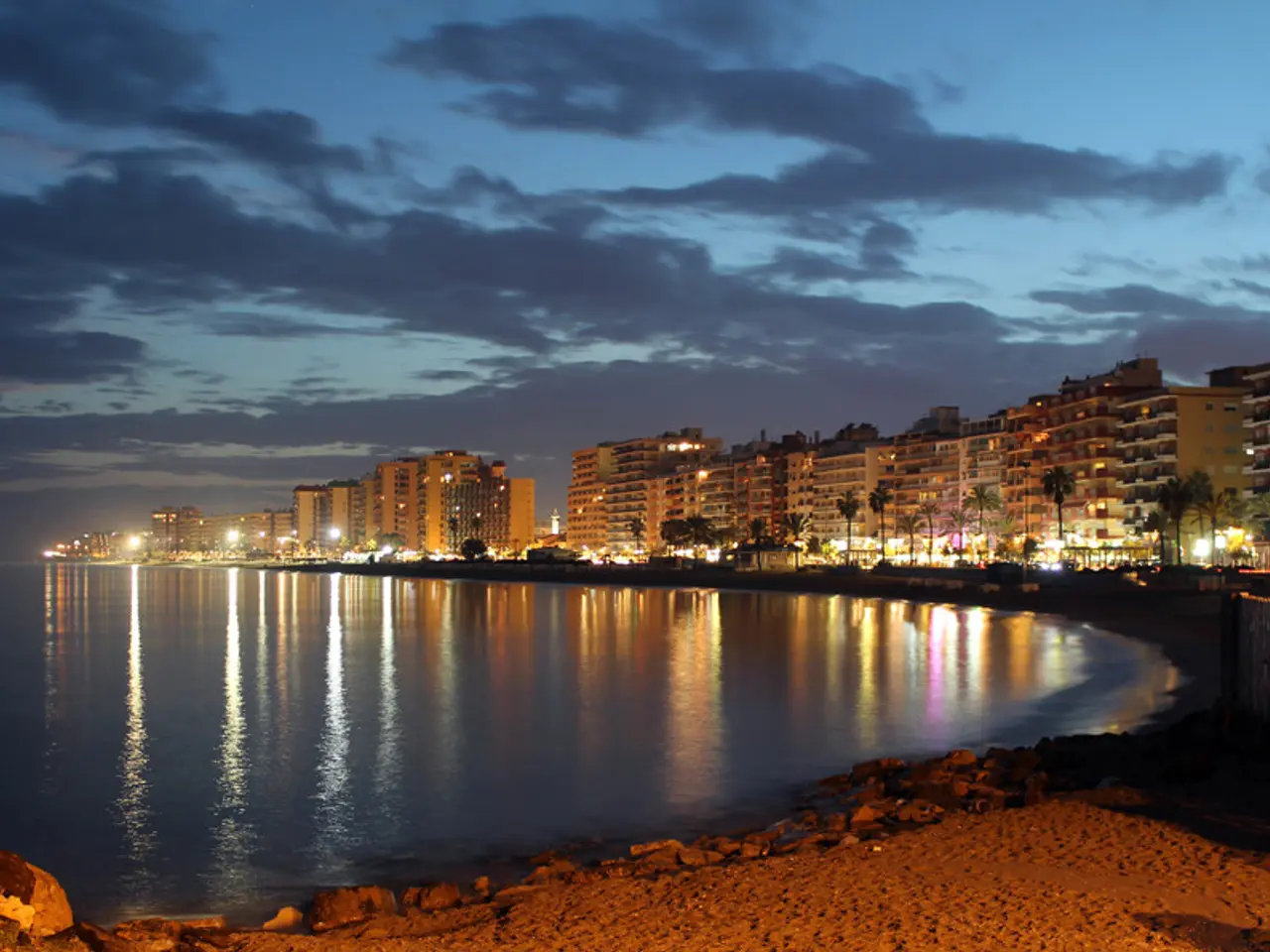Revenues Generated from Venice Entry Reach 5.4 Million Euros - Revenues surge in Venice by 5.4 million euros with new entry
Venice, the iconic Italian city famed for its canals, gondolas, and historic architecture, has introduced an entry ticket system for day tourists in its historic centre. The system, first introduced in 2024 and expanded in 2025, aims to control mass tourism and alleviate the pressure on the city's fragile environment and infrastructure. However, its effectiveness has been a subject of debate.
During the 2024 trial phase, around 485,000 people were registered, resulting in revenues of approximately 2.4 million euros. In the second trial phase of 2025, this figure increased to over 720,000 paying visitors, generating nearly 5.4 million euros. These revenues, after deducting operating costs, are intended to directly benefit the city and its residents, for example through stable waste management fees.
The entry fee, which ranges from €5 to €10 depending on how early visitors book, applies on specific high-traffic days, primarily weekends and holidays. Visitors booking at least four days in advance pay €5, while those booking closer to the date pay €10.
Despite the revenue generated, critics argue that the system has done little to deter crowds. Fewer than 50,000 people live in Venice's historic centre, but millions of tourists visit each year. Criticism remains unchanged regarding the entry system, including the presence of too many exceptions and no binding visitor limit. Exceptions to the payment system included locals, children, and overnight guests who already pay the tourist tax.
The finance councilor, Michele Zuin, stated that the system had worked well in its second year and provided more planning security for visitors. However, he also acknowledged that the system was not designed to raise funds, but rather to manage tourism. Some supporters view the entry system as a symbolic gesture to protect Venice.
Looking ahead to 2026 and beyond, potential alternatives or enhancements to the entry system include stricter enforcement of ticketing, increased capacity of certain attractions, dynamic pricing and day limits, more comprehensive regulation of tourism accommodations and activities, and even visitor caps or split entry times, as seen in places like Pompeii.
In summary, the entry ticket system provides a financial tool and management framework, but has not fully controlled overtourism in Venice. Future strategies are likely to combine continued ticketing reforms with stricter regulatory controls and possibly visitor caps or more nuanced crowd distribution mechanisms to better protect the city’s heritage and residents’ quality of life.
[1] The Local Italy. (2023, March 13). Venice to tighten entry ticket rules and crack down on ticket resales. Retrieved from https://www.thelocal.it/20230313/venice-to-tighten-entry-ticket-rules-and-crack-down-on-ticket-resales/
[2] The Guardian. (2023, March 14). Venice tightens ticket rules to end ticket resales and improve entry system. Retrieved from https://www.theguardian.com/world/2023/mar/14/venice-tightens-ticket-rules-to-end-ticket-resales-and-improve-entry-system
[3] The Art Newspaper. (2023, March 15). Venice tightens ticketing rules to combat ticket resales and improve visitor management. Retrieved from https://www.theartnewspaper.com/news/venice-tightens-ticketing-rules-to-combat-ticket-resales-and-improve-visitor-management
[4] CNN Travel. (2023, March 16). Venice tightens ticketing rules to combat ticket resales and improve visitor management. Retrieved from https://edition.cnn.com/travel/article/venice-tightens-ticketing-rules/index.html
- The revenue generated by the entry ticket system, originally designed for managing tourism, could potentially be allocated toward improving community facilities, such as public libraries or parks, contributing to a more positive local lifestyle.
- In an effort to promote sustainable travel and support the local economy, employment policies could be established to encourage job opportunities in Venice that cater to tourists, such as guides, restaurant staff, and hotel workers, thereby enhancing the overall travel experience for visitors and improving the city's financial health.




